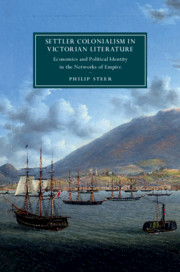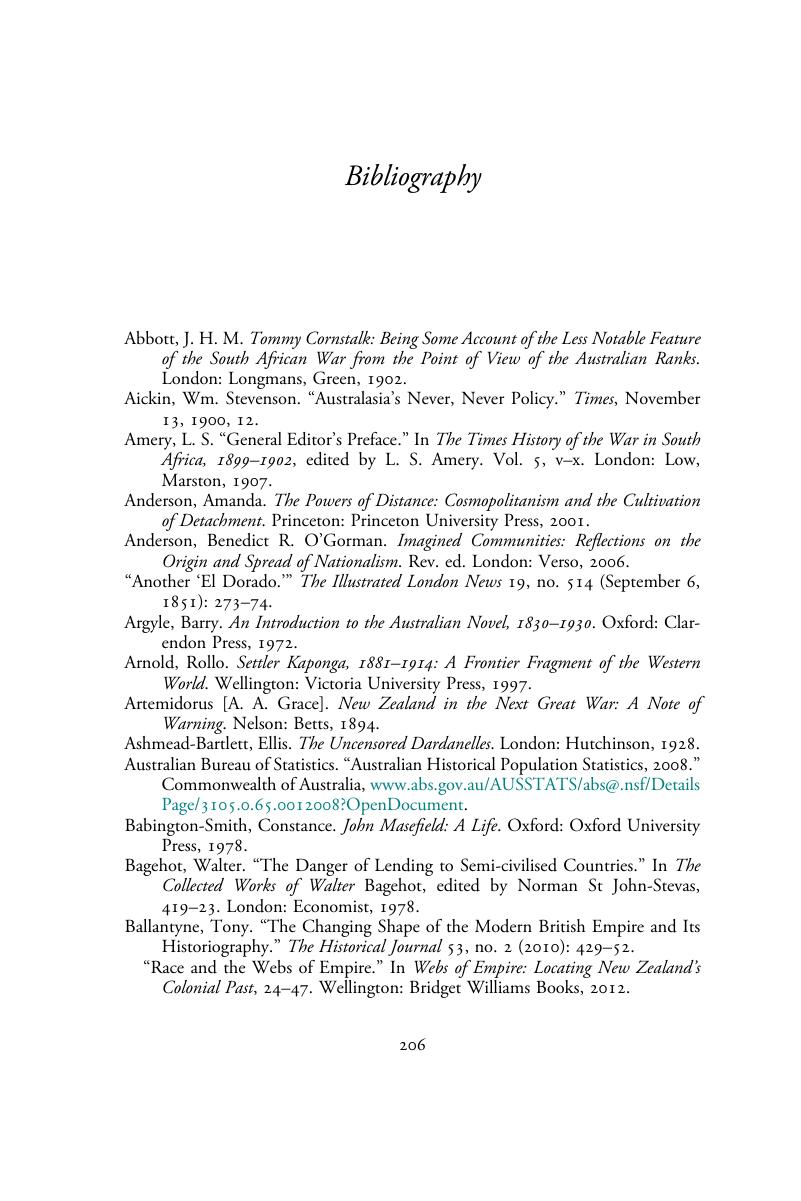 Settler Colonialism in Victorian Literature
Settler Colonialism in Victorian Literature Book contents
- Settler Colonialism in Victorian Literature
- Cambridge Studies in Nineteenth-Century Literature and Culture
- Settler Colonialism in Victorian Literature
- Copyright page
- Dedication
- Contents
- Figures
- Acknowledgments
- Introduction
- Chapter 1 The Transportable Pip
- Chapter 2 Gold and Greater Britain
- Chapter 3 Speculative Utopianism
- Chapter 4 Manning the Imperial Outpost
- Conclusion
- Bibliography
- Index
- Cambridge Studies in Nineteenth-Century Literature and Culture
- References
Bibliography
Published online by Cambridge University Press: 19 December 2019
- Settler Colonialism in Victorian Literature
- Cambridge Studies in Nineteenth-Century Literature and Culture
- Settler Colonialism in Victorian Literature
- Copyright page
- Dedication
- Contents
- Figures
- Acknowledgments
- Introduction
- Chapter 1 The Transportable Pip
- Chapter 2 Gold and Greater Britain
- Chapter 3 Speculative Utopianism
- Chapter 4 Manning the Imperial Outpost
- Conclusion
- Bibliography
- Index
- Cambridge Studies in Nineteenth-Century Literature and Culture
- References
Summary

- Type
- Chapter
- Information
- Settler Colonialism in Victorian LiteratureEconomics and Political Identity in the Networks of Empire, pp. 206 - 221Publisher: Cambridge University PressPrint publication year: 2020


